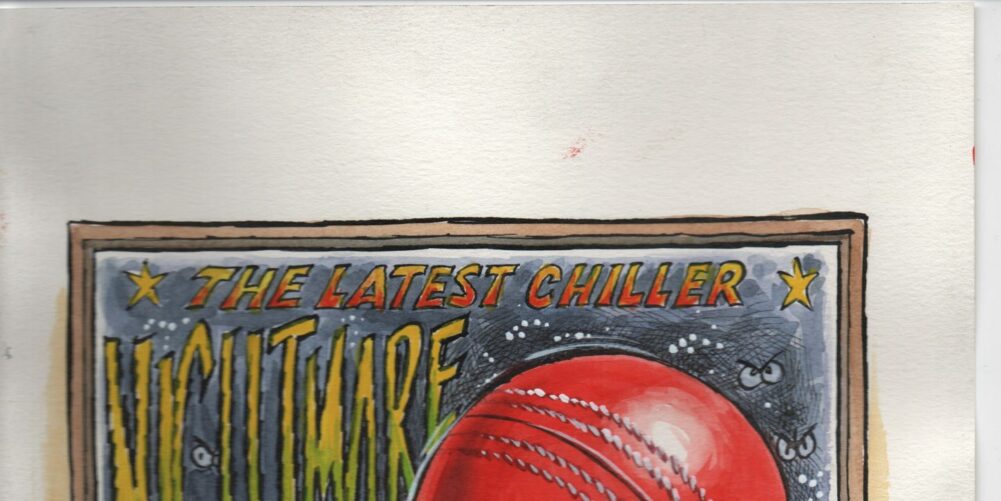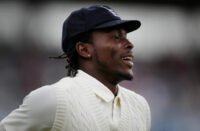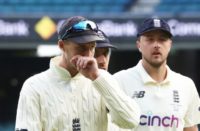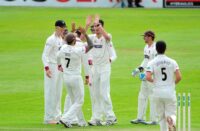Back in the 1970s, it was nigh on impossible to go to the cinema without seeing a film about skyscrapers bursting into flames, ocean liners capsizing, or an air-hostess taking control of a Jumbo jet with a large hole in the fuselage and down to one smoking engine.
I was reminded of this last summer, when Sky decided to make a disaster movie about cricket, which was every bit as harrowing as having a giant meteorite flying straight for your front room, or being unable to get your gin and tonic refilled because the hostess was too busy flying the plane. They called it England in the 90s.
It was certainly, if your nerves could stand it, a good way of keeping the audience engaged when it rained, and it might well spawn a whole new series of cricket disaster documentaries. In which case might I suggest that the next one off the production line is entitled England in the 80s.
Things were even worse in that decade, despite the fact that there were more actual high points. Including the Botham heroics of 1981, no less than three Ashes victories, and a totally unexpected series win in India in 1984-85. Otherwise, however, it was disaster on an eye-watering scale.
There was one captain for almost every year of the decade, including four in one series. Or five if you include the two sessions Derek Pringle found himself in charge in the final Test of the summer against the West Indies at the Oval in 1988. And Del was one of the reasons I had a bad feeling about that series even before it began.
It was the day before the opening Test at Trent Bridge, and the chairman of selectors Peter May was holding court in front of the assembled media on the outfield. It was a blisteringly hot day, and the chairman was wandering around without a hat, which may have gone some way towards explaining some of the utterances he came out with.
One of which, in reply to a question about whether Pringle’s batting was strong enough to merit being given the all-rounder’s slot, was: “Well, my informants tell me that Derek has been hitting it over the top this summer.” Which possibly he had been for Essex, but it was a trifle harder to conjure up a vision of Derek launching the likes of Malcolm Marshall, Courtney Walsh, Curtly Ambrose and Patrick Patterson over the pavilion roof.
In the event, the next media inquiry into selection involved Mike Gatting’s choice of a local barmaid as a late-night drinking companion at the team hotel, which resulted in the captain getting the sack, John Emburey being put in charge of the next couple of Tests, followed by Embers being demoted back to the ranks in favour of PBH’s godson, Chris Cowdrey.
Cowdrey bagged a pair, and after having to withdraw from the final Test after hurting his foot batting for Kent (no central contracts in those days), Graham Gooch took over at the Oval. Which led to him being appointed captain for the winter tour to India, and the tour being called off when India objected to Gooch’s South Africa connections. All in all, a jolly fine summer.
Gatting’s appointment as captain had followed David Gower’s sacking in 1986. After presiding over a 5-0 blackwash in the West Indies, Gower was put on trial for the three Test series against India, which began with England selecting eight of the 11 players who’d featured in the fifth and final defeat in the Caribbean. And the retention of Tim Robinson (72 Test match runs at an average of nine) prompted John Woodcock to write in The Times: “It may be no easy matter to get into the England side, but just try getting out of it.”
Gower’s trial ended with PBH reaching for the black cap after defeat in the opening Test and, after losing the series 2-0, England went on to lose 1-0 against New Zealand. So Gatting leading England to victory in Australia that winter was, to put it mildly, something of a surprise.
However, the brave new dawn turned out to be a mirage. What followed was a period in which England made the front pages almost as often as the back. And not for the right reasons. Starting with the fractious summer of 1987, which ended in a 1-0 home defeat by Pakistan and what we thought at the time was a series unlikely to be matched for acrimony ever again. Whereas it took just a few months for it to appear like a minor tiff.
The return series in Pakistan didn’t get off to the best of starts when Chris Broad declined to accept an umpiring decision in Lahore, and the next Test in Faisalabad resulted in such a conflagration that the fallout stretched to Foreign Office level. Gatting got a lot of well-deserved stick for blowing a gasket on the field, but you had to be there to fully appreciate what a pompous cheat and incompetent buffoon he was up against in umpire Shakoor Rana.
It was no surprise then when Gatting was not considered for another spell as captain when Ted Dexter took over from PBH for the Ashes summer of 1989. Or so we thought at the time. Even when suspicions were aroused when Lord Ted, invited to say that David Gower’s appointment had been unanimous, circumnavigated the question in a manner befitting a former candidate for Parliament.
“After a long discussion” said Ted “he was the committee’s choice.” Which would have been correct had he inserted the word “second” in front of “choice”. Ted had actually chosen Gatting until the otherwise anonymous TCCB chairman, Ossie Wheatley, applied his constitutional veto and, like all attempts at a cover-up, the Board ended up looking even more of a laughing stock when it all came out.
Good old Ossie. Without him we’d never have had a summer that had even the most hardened pressmen wheezing with laughter while they typed. A thrashing of monumental proportions, the captain walking out of a press conference to go the theatre, the chairman wondering whether the alignment of the planets was all to blame, and Gatting, in a fit of pique at the captaincy veto, leading another rebel tour to South Africa.
So if you thought England In The 90s was a disaster movie, just wait until Sky get around to one on the 80s. They probably won’t, though, if only on commercial grounds. Namely, the fear of the Ofcom Content Board ruling that it can only be broadcast after the 9pm watershed, and watched by consenting adults only.
This piece originally featured in The Cricket Paper, April 28 2017
Subscribe to the digital edition of The Cricket Paper here












